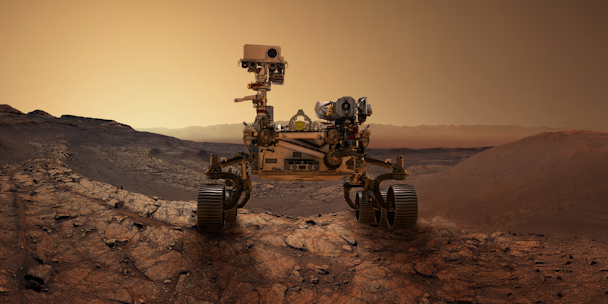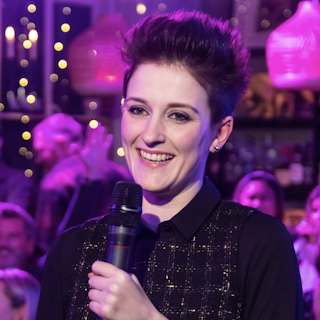Using NASA grade technology to solve entertainment problems
There’s lot of hype around AI at the moment and most companies within entertainment and influencer marketing are taking off-the-shelf solutions, according to Ricky Ray Butler, chief executive officer, of Branded Entertainment Network.

Using NASA grade technology to solve entertainment problems
Butler, in a barside chat at The Drum Arms in Cannes with the co-founder and editor-in-chief Gordon Young on how AI is impacting and revolutionizing entertainment, content, and advertising, explained that using solutions like Amazon Recognition and IBM Watson comes with various problems.
“You’re taking existing applications and, in some ways, trying to force it to work for something that's very customized or specific. When it comes to entertainment and influencer marketing, you need to build your AI from the ground up.”
There are millions of different pieces of content being uploaded globally every day and as a result of this, there’s a lot of more unstructured data out there. The kind of data you can only learn from visuals, audio, or groups of text.
According to Butler, around 90% of brands only use structured data. The problem with this, he adds, is that structured data is only 10% of all the information out there. Brands aren’t getting the entire picture; they’re not looking at 90% of the data.
NASA type solution
BEN’s solution is very niche, and most people can’t afford it. “You have the likes of NASA, Google, and Facebook that can all afford it,” he said. “But we're unique as a very small business, especially being in entertainment and influencer marketing, to build and take this type of technology and utilize it.”
BEN creates inhouse, deep learning neural networks/algorithms. This type of technology allows tech the ability to build and learn like a human, making it so it can scale like a machine.
“This technology can look over tens of thousands of videos in minutes and find different nuances, correlations, and patterns between all these other videos that we as humans wouldn’t be able to do or have the time to do it. It would take us years, what takes this technology minutes.
This type of tech, according to Butler, is still new and there are not a lot of companies, specifically within entertainment and influencer marketing, that are using deep learning technology.
Butler explained: “This is something we've invested in on our platform to build and take on this type of technology, pushing the needle forward where we can do things that are not just the future of entertainment and advertising but where we can actually look around the corner and do things that no one else is touching yet.”
Having a solution on structured data is a really big deal and BEN is noticing that it's the unstructured side of the data that's helping them with findings and seeing the nuances, and correlations to actually predict conversions better.
“You have to learn from both the unstructured data as well as the structured data, then use AI to help take the data from the past to better predict the future. Everything needs to be data-driven when it comes to the content strategy.”
Brands stepping back and giving up control
Brands only lead in a world that has this new non-ad-supported platform, believes Butler. “The Netflix to the Amazons, as well as all the other platforms being developed which have a lot of good content, is the future element. It's important for brands to be a part of that. As well as figuring out how to have the solution in sync with those brand integrations on Instagram, YouTube, Push.TV etc.”
There needs to be a multi-platform strategy to being inside the content because that is where the viewers are. The globalization of content is going to continue to happen, insists Butler. “I don't think it's going to be just the English language that's leading the whole process. There's going to be a lot more variety of niches and the more niche you find, sometimes you'll find a more loyal audience. And so you have to keep tabs and stay on top of all that.”
Brands looking to capitalize on this need to look at everything much differently. They need to step back and realize that the process of creating ads, both prints, TV, or digital, is going to have to change. “They're going to have to figure out how they can be a part of the community, a part of the conversation in a much more organic way. Perhaps even give up some control.”
Brands will have to step back and realize that this is not one of those things that you check off the list. “If you look at product placement, brand generation, or influencer marketing, it's always been one of those marketing tactics that people just do to be a part of the mix. But it’s never prioritized,” he said.
Brands are going to have to change everything they know about advertising and then step back and really lean more on the storytellers, following their guidance.
“Brands need to have this in their processes to be able to work with a lot of different content creators and build a scale across different languages and age groups across a lot of different content to build the same story. And at the same time, following the nuances and cultural differences of all the different groups.”
Creating an ad, whether it's a digital display ad or a commercial, is going to be different when working with content creators today. “Going from owning your own content to being a guest in thousands of other people’s content, it's a different process but this is the future and this is how millennials and Gen Z prefer to be communicated to.”


